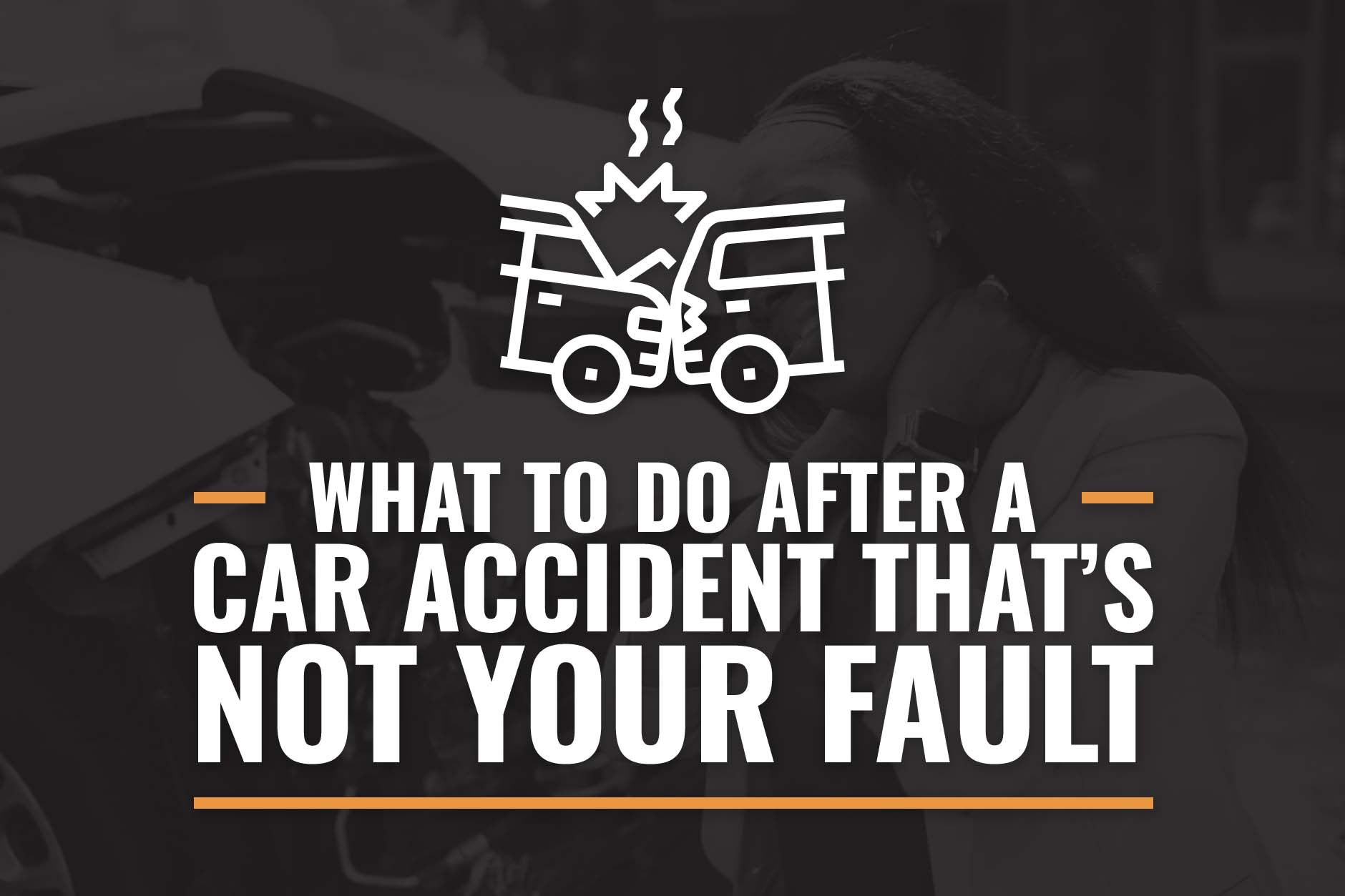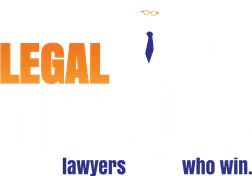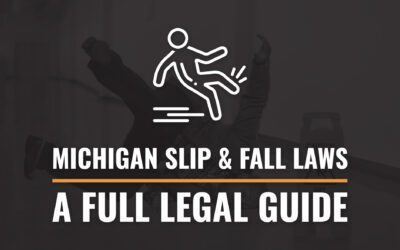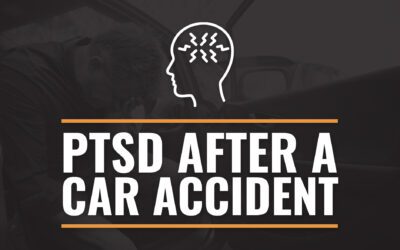
Table of Contents
Being in a collision is stressful enough, but when you didn’t cause it, the frustration is even worse. In Michigan, your own insurance company usually pays for your medical treatment and lost wages, but unless you have collision coverage, you may have to cover your own repairs (or get partial reimbursement through a mini-tort claim), and you can’t recover anything for pain, suffering, and emotional stress unless your injuries meet a certain threshold.
These are all worries and challenges that LegalGenius can help you overcome. In this guide, we’ll explain what to do after a car accident that’s not your fault in Michigan and how our experienced personal injury attorneys can help.
Michigan No-Fault Insurance Law: An Overview
Michigan operates under a no-fault insurance system, which means your own insurance company pays for your medical bills and lost wages regardless of who caused the accident. This system allows for faster payment of immediate expenses, but can limit your ability to sue the at-fault driver. Knowing these limitations is important for protecting your rights.
Personal Injury Protection
Under Michigan’s no-fault system, every driver must carry Personal Injury Protection (PIP) coverage, which will pay for medical expenses related to your accident injuries, regardless of who was at fault. It also covers a portion of your lost wages (typically up to three years, although the amount varies based on your policy).
PIP benefits include attendant care services if you need help with daily activities due to your injuries. This coverage can pay for professional care providers or family members who assist with your recovery. Michigan law also requires PIP coverage to pay for rehabilitation services, including physical therapy and occupational therapy needed for your recovery.
Michigan allows for different levels of PIP coverage, including unlimited lifetime medical benefits or capped amounts. The choice you made when purchasing your policy affects what benefits you’ll receive after an accident. Some drivers opt for coordinated coverage, which means their PIP benefits coordinate with their health insurance to avoid duplicate payments.
Filing a Personal Injury Lawsuit
You can only file a lawsuit against the at-fault driver if your injuries meet the “serious impairment of body function” threshold or if you have over $6,000 in medical expenses. The serious impairment threshold is subjective and depends on factors like the nature of your injury, its impact on your daily life, and whether it affects your ability to work or participate in activities you used to enjoy.
Your own insurance company should cover your medical bills, a portion of your lost wages, and other benefits, regardless of fault. However, you may still want to pursue a claim against the at-fault driver’s insurance for property damage and, if applicable, pain and suffering. This is where having an attorney is especially important.
Property Damage Claims
If the at-fault driver has adequate property damage liability coverage, their insurance should pay for your vehicle repairs or replacement value. Michigan requires drivers to carry at least $10,000 in property damage liability coverage, though this amount often isn’t enough to cover the full value of damaged vehicles. Consequently, many drivers purchase higher limits to better protect themselves and others.
When the at-fault driver lacks sufficient coverage or can’t be identified (such as in hit-and-run accidents), you may need to use your own collision coverage. You’ll typically have to pay your deductible upfront, but you can often recover this amount later through your insurer’s subrogation efforts. Some insurance companies will waive the deductible if they can prove the other driver was at fault.
What to Do at the Accident Scene
When a crash happens, your priority needs to be checking yourself and any passengers for injuries. Call 911 immediately if anyone seems hurt or if there’s substantial property damage. Everyone in your vehicle should also get a medical evaluation even if you feel fine: adrenaline can mask pain and potentially catastrophic injuries like brain damage and internal bleeding. A medical record also establishes a connection between the collision and your injuries.
Be honest with healthcare providers about all symptoms you’re experiencing: don’t downplay discomfort or pain because you think it’s not serious enough. You should also follow all treatment recommendations from your healthcare providers, such as follow-up appointments, physical therapy, or taking prescribed medications. Insurance companies often use gaps in treatment or failure to follow medical advice as reasons to dispute the severity of your injuries.
Dealing with the Police
When police arrive, provide them with accurate information about what happened. Stick to the facts you observed and avoid speculation. Tell them if you’re experiencing any pain or discomfort, even if it seems minor. Sometimes injuries become apparent hours or days after an accident.
Ask the responding officer for their name, badge number, and the report number for the accident. You’ll need this information to obtain a copy of the police report later. Ask when the report will be available and how you can get a copy. This report often contains valuable information about the officer’s assessment of fault.
If you disagree with the officer’s version of events or if they cite you for a violation you don’t believe you committed, don’t argue at the scene. You can contest citations later in court or through your attorney. Focus on documenting your version of events and gathering evidence that supports your account.
Gathering Information
Exchange information with all other drivers involved in the accident. You’ll need their full names, phone numbers, insurance company names and policy numbers, driver’s license numbers, and vehicle information including make, model, year, and license plate numbers. Don’t rely on other drivers to provide this information later – get it while you’re still at the scene.
If there are witnesses, ask for their contact information and a brief statement about what they saw. Witnesses can provide important third-party accounts of how the accident occurred. They may have noticed details that you missed or can contradict false claims from the other driver. Write down or record their statements if they’re willing to provide them.
Note any relevant details about the accident scene. This includes weather conditions, road conditions, time of day, traffic light cycles, and any construction zones, as these factors can all determine fault. If the other driver says anything about being at fault, write down their exact words, as these admissions can be valuable evidence.
What NOT to Say
Never admit fault or apologize at the scene, even if you think you might have contributed to the accident. Saying “I’m sorry” can be interpreted as an admission of guilt by insurance companies. Adrenaline and shock can cloud your judgment about what actually happened, so let the investigation determine fault based on evidence rather than statements made in the heat of the moment.
You should also avoid discussing the accident with the other driver. Stick to exchanging information: don’t speculate about who was at fault or what caused the accident. The less you say, the less chance there is of your words being taken out of context later.
Finally, be cautious about what you post on social media after the accident. Insurance companies often monitor social media accounts of claimants, looking for evidence to deny or reduce claims. Avoid posting photos or comments about the accident, your injuries, or your activities. Even innocent posts can be misinterpreted and used against you.
Documenting Your Injuries and Damages
Keep detailed records of all medical treatments related to the accident. This includes hospital visits, doctor appointments, physical therapy sessions, prescription medications, and any medical equipment you need. You’ll also want to track all expenses related to the accident, including towing fees and other costs beyond medical bills, as these expenses may be recoverable in your claim.
We recommend keeping a daily journal documenting your pain levels, symptoms, and how the injuries affect your daily activities. This personal record can help demonstrate the impact of your injuries on your life. Include details about activities you can’t perform, sleep disturbances, and any emotional effects you’re experiencing.
Communicating with Insurance Companies
Contact your insurance company as soon as possible to report the accident. Most policies require prompt notification, and delaying can jeopardize your coverage. Provide them with all the information you’ve gathered, including the police report number when it becomes available.
Be prepared for the at-fault driver’s insurance company to contact you. You’re not required to speak with them immediately, and it’s often best to consult with a car accident attorney first. These insurers are looking out for their own interests, not yours, and may try to get you to make statements that could hurt your claim later. Consider having an attorney handle these communications to protect your interests.
When to Call an Attorney
You should contact an attorney immediately after the accident, especially if you’ve been injured and the other driver doesn’t have insurance or if there are questions about who caused the accident. Most personal injury attorneys, including LegalGenius, offer free consultations and work on a contingency basis, meaning you don’t pay unless they recover compensation for you.
At LegalGenius, we know how difficult it can be to deal with insurance companies and medical bills when you’re trying to recover from an accident. Our experienced attorneys have helped thousands of Michigan residents get the compensation they need after car accidents. We know the tricks insurance companies use to minimize payouts, and we won’t let them take advantage of you.
Common Mistakes to Avoid After a Car Accident
- Don’t wait too long to seek medical attention or legal advice. Michigan has deadlines for filing car accident claims and lawsuits, and evidence can disappear quickly. The longer you wait, the harder it becomes to prove your case. Take action immediately to protect yourself.
- Avoid settling too quickly with insurance companies. The first offer is rarely the best offer, and you may not know the full extent of your injuries immediately after an accident. Consult with an attorney before accepting any settlement offer to ensure it covers all your damages.
- Don’t sign anything without reading it carefully or having an attorney review it. Insurance companies may try to get you to sign releases or other documents that can hurt your claim. Once you sign something, it’s usually too late to change your mind.
Your Rights in Michigan After a Car Accident
- You have the right to choose your own doctor and medical providers for treatment of your injuries. Don’t let insurance companies pressure you into using their preferred providers. You also have the right to obtain a copy of the police report and any other records related to your accident.
- If the accident was truly not your fault, you shouldn’t have to pay deductibles for property damage claims against the at-fault driver’s insurance. You also have the right to rental car coverage while your vehicle is being repaired, so make sure you understand all the benefits available under your policy.
- You have the right to legal representation at any stage of the claims procedure. Don’t feel like you have to handle everything by yourself. An experienced attorney can help ensure you get the maximum compensation available under the law.
Get a Free Consultation From a Michigan Car Accident Attorney
Recovering from a car accident that wasn’t your fault can be a long and frustrating experience. You shouldn’t have to deal with aggressive insurance companies and mounting bills, especially while you’re trying to heal. By taking the right steps immediately after the accident and hiring a personal injury attorney, you can protect yourself and get the financial compensation you need.
Contact LegalGenius today if you’ve been in a car accident that wasn’t your fault. Our experienced Michigan attorneys will fight to get you the compensation you need to move forward with your life. You’ve been through enough – let us handle your insurance claim while you heal. To learn more about our services or schedule a no-obligation consultation, fill out our Ask the Genius™ form or call 1-800-209-4000 today.

Attorney Jeffrey Perlman
Attorney Jeffrey Perlamn is the managing partner at LegalGenius, PLLC. He has helped Metro Detroit accident victims recover the compensation they deserve for over 35 years. He believes everyone should have access to justice and the legal system, which is why Attorney Perlman spends his time outside of the courtroom writing informational blogs on the LegalGenius website that are accessible to all.


